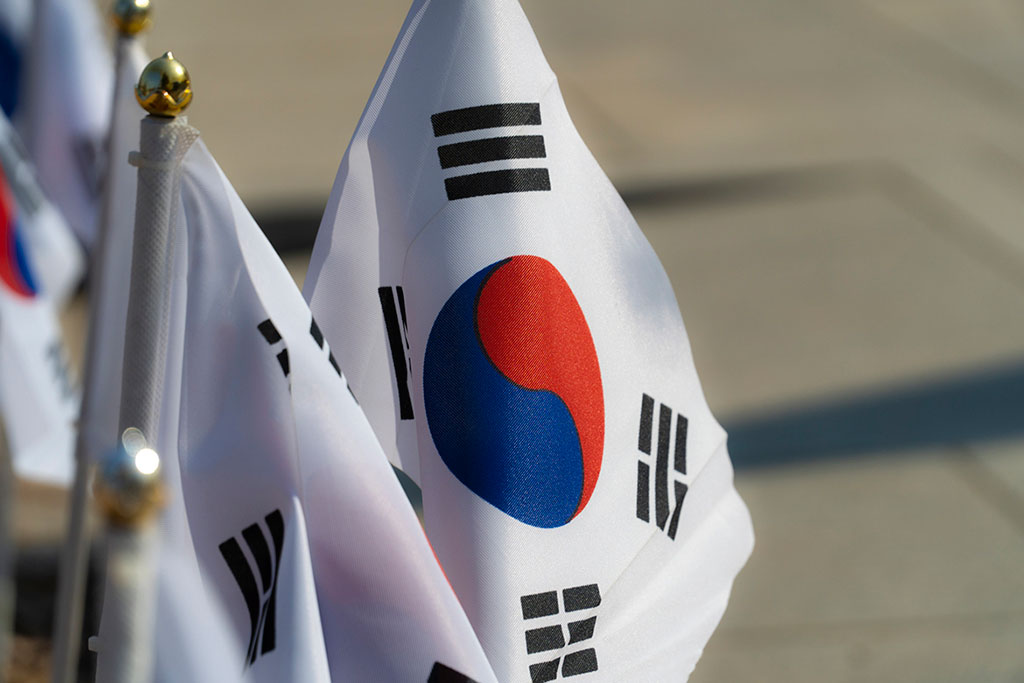
With over 3 years of crypto writing experience, Bena strives to make crypto, blockchain, Web3, and fintech accessible to all. Beyond cryptocurrencies, Bena also enjoys reading books in her spare time.
South Korea’s upcoming election sees cryptocurrency’s rising influence as parties propose contrasting policies, sparking debates over taxation and regulation.
 Edited by Julia Sakovich
Updated
4 mins read
Edited by Julia Sakovich
Updated
4 mins read

As South Korea readies for its pivotal general election on April 10th, 2024, the nation’s political arena witnesses an extraordinary transformation. Cryptocurrencies, once viewed as an unconventional asset category, are now asserting as a strong influence, shaping policy deliberations and voter sentiments.
South Korean political parties are acknowledging the importance of establishing policies regarding crypto assets, according to the JoongAng Daily. The recognition arises due to the escalating popularity of cryptocurrencies within the nation, propelled partly by Bitcoin’s substantial price escalation.
As of today, March 20th, 2024, Bitcoin‘s current trading value on Upbit, South Korea’s prominent cryptocurrency exchange, stands at 92.1 million won ($68,654). Although this figure indicates a slight decrease from its recent high of 105 million won, it represents a substantial 60% surge since the commencement of the year.
The recent financial might of cryptocurrency has empowered its enthusiasts, who are increasingly banding together as voting blocs. Both the conservative People Power Party (PPP) and the rival Democratic Party (DP) are keenly aware of this trend and have formulated distinct policy proposals to cater to this influential demographic.
The PPP, aligned with the current Yoon Suk Yeol administration, prioritizes stability and protecting investor interests in its approach to cryptocurrencies. A central policy objective is the extension of the tax deferral on crypto-assets. Originally, this tax break, applicable to investment gains exceeding 2.5 million won, was supposed to end in January 2022, But it got pushed back twice already, and the PPP promises to delay it even more.
Acknowledging the importance of a comprehensive regulatory framework, the PPP intends to enact additional legislation emphasizing investor safeguards. Among these measures is establishing a dedicated committee to monitor the industry and safeguard investors’ interests. Additionally, they aim to standardize the regulatory filing procedures for cryptocurrency exchanges.
On the other hand, the Democratic Party embraces a more progressive approach. In early 2024, they unveiled their intention to sanction the issuance, listing, and trading of cryptocurrency-backed Exchange Traded Funds (ETFs). This move would facilitate investors’ entry into the cryptocurrency market through traditional investment vehicles.
Additionally, the Democratic Party proposes a substantial elevation in the deduction limit for capital gains taxation on crypto asset investments, rising from the current 2.5 million won to an expanded 50 million won threshold. This strategic measure is purposefully designed to foster long-term cryptocurrency investment practices and stimulate market growth.
However, DP’s agenda also includes a contentious initiative – prohibiting lawmakers from engaging in cryptocurrency trading during parliamentary sessions. This proposition emerges from the recent controversy surrounding Representative Kim Nam-kuk, who departed amidst allegations of unethical cryptocurrency transactions.
While both parties offer compelling policy proposals, uncertainties remain. President Yoon’s recent commitment to abolish the proposed capital gains tax on stock investments set for 2025 has sparked concerns over potential tax disparities regarding cryptocurrencies. Such discrepancies could sway voter sentiment among the crypto investor demographic.
“A basic system should be set up before actually taxing crypto-assets,” said Seok Byoung-hoon, an economics professor at Ewha Womans University, emphasised that “a detailed guideline should be established to minimize any side effects that may occur during the institutionalization of crypto-assets, rather than outright banning them”.
Lee Bok-hyun, governor of the Financial Supervisory Service, recently acknowledged the differing opinions among authorities regarding virtual assets. While some, like Lee himself, hold a positive stance, others remain cautious. This internal discord could delay the implementation of any new crypto-related policies.
South Korea’s 2024 general election signifies a pivotal role for the nation’s cryptocurrency domain. The election’s ramifications will profoundly shape the regulatory framework and future course of cryptocurrencies within South Korean borders.
Disclaimer: Coinspeaker is committed to providing unbiased and transparent reporting. This article aims to deliver accurate and timely information but should not be taken as financial or investment advice. Since market conditions can change rapidly, we encourage you to verify information on your own and consult with a professional before making any decisions based on this content.

With over 3 years of crypto writing experience, Bena strives to make crypto, blockchain, Web3, and fintech accessible to all. Beyond cryptocurrencies, Bena also enjoys reading books in her spare time.





